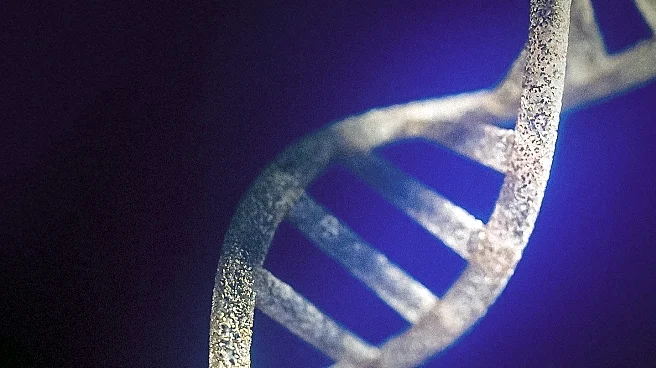What's Happening?
Stealth BioTherapeutics is awaiting a critical decision from the FDA regarding its drug elamipretide, designed to treat Barth syndrome, an ultra-rare genetic mitochondrial disorder. The Barth Syndrome Foundation, led by Kate McCurdy, is advocating for the drug's approval, emphasizing its potential life-saving benefits for patients, particularly infants and toddlers. The FDA previously rejected the drug in May 2024, prompting Stealth to resubmit for accelerated approval with updated safety data and resolved manufacturing issues. The FDA's decision is expected by September 26, 2025, following a recommendation for accelerated approval. The drug's approval is vital not only for patients but also for Stealth's survival, as failure to secure approval could lead to the company's closure.
Why It's Important?
The approval of elamipretide is significant for the Barth syndrome community, which currently lacks any approved treatments for this debilitating condition. The drug has shown promise in improving muscle strength and overall quality of life for patients, including critically ill infants. The FDA's decision will impact the availability of this potentially life-saving treatment and could set a precedent for the approval process of therapies for ultra-rare diseases. Additionally, Stealth BioTherapeutics' future hinges on this decision, as the company faces financial challenges and potential closure without FDA approval. The broader implications include potential shifts in regulatory approaches to rare disease treatments and the survival of biotech companies focused on niche markets.
What's Next?
If the FDA grants accelerated approval, Stealth BioTherapeutics will continue to provide elamipretide through its expanded access program, potentially expanding its availability to more patients. The decision could also influence future FDA policies on rare disease drug approvals, particularly in light of the agency's new Rare Disease Evidence Principles. Should the FDA reject the application again, Stealth may face significant financial difficulties, impacting its ability to continue operations and support ongoing research. The Barth Syndrome Foundation and other stakeholders may increase advocacy efforts to push for reconsideration or alternative pathways for approval.
Beyond the Headlines
The ethical considerations surrounding the approval of elamipretide highlight the challenges faced by patients with ultra-rare diseases and the biotech companies that develop treatments for them. The FDA's decision could influence how regulatory bodies balance the need for rigorous clinical evidence with the urgency of providing access to potentially life-saving therapies. The case also underscores the importance of patient advocacy in shaping drug approval processes and the role of public petitions in influencing regulatory decisions.








